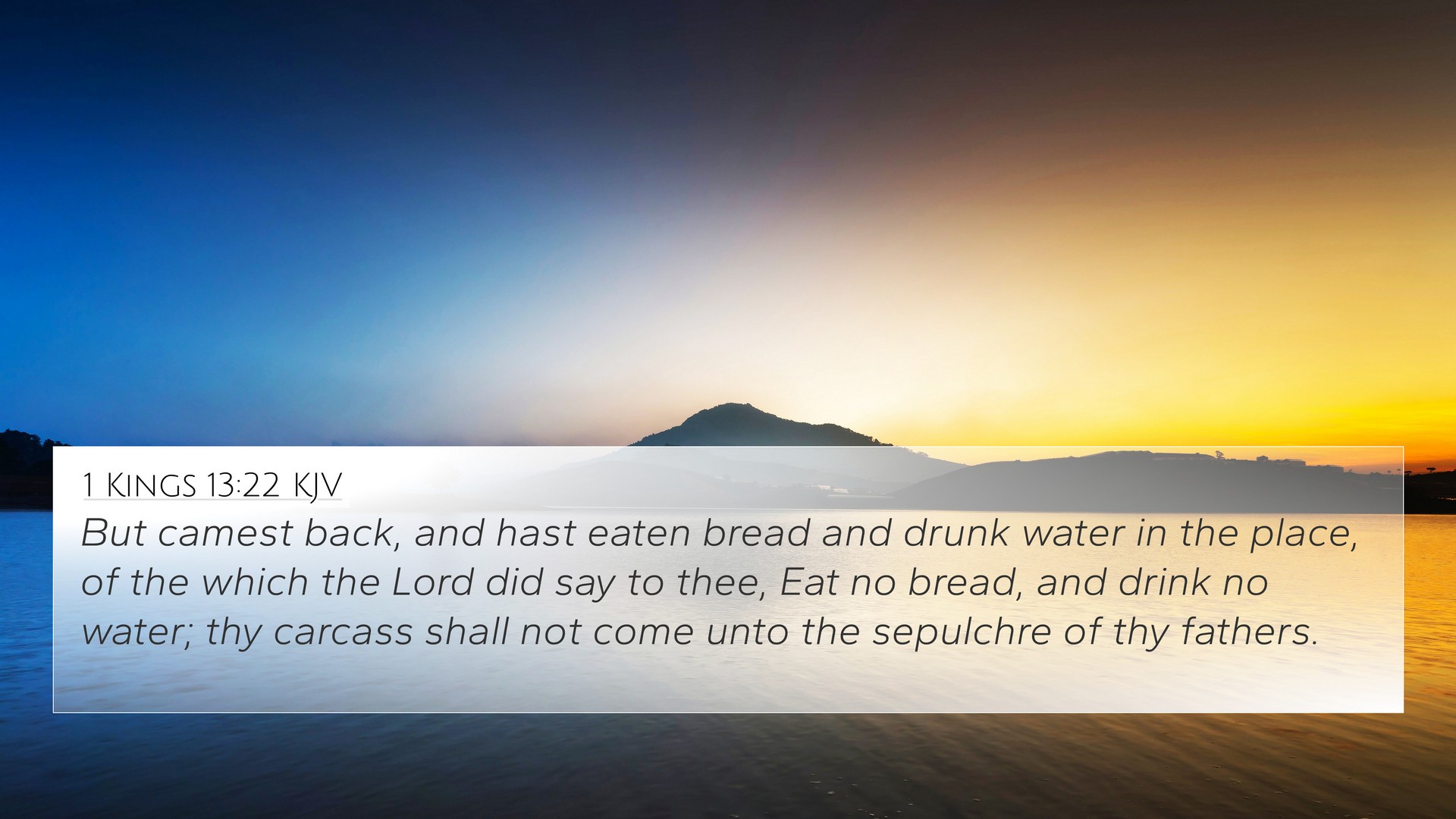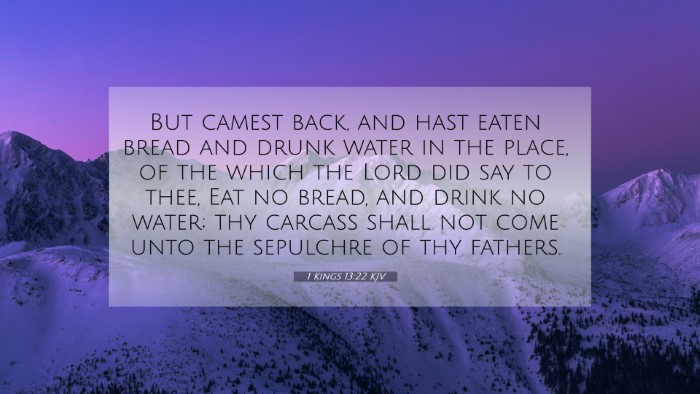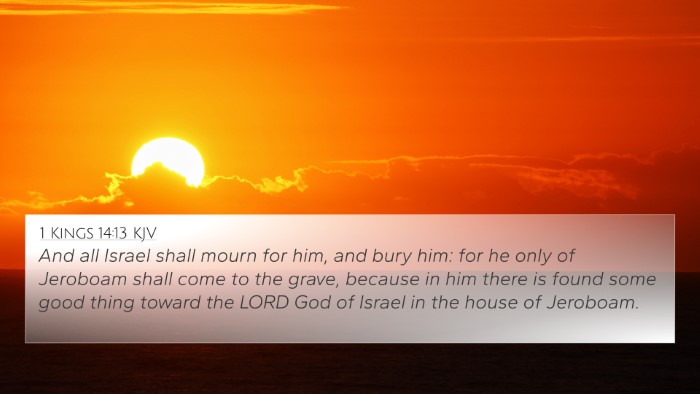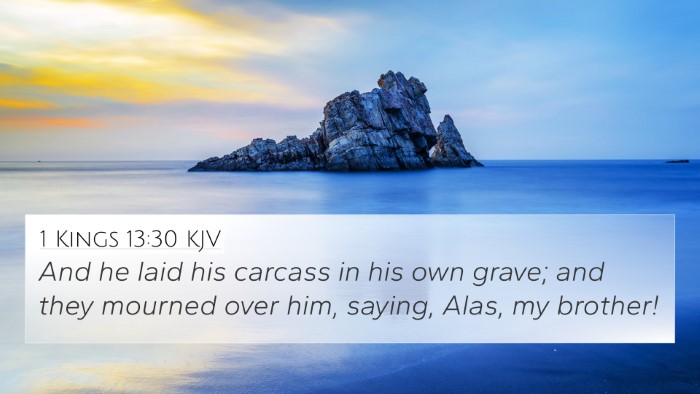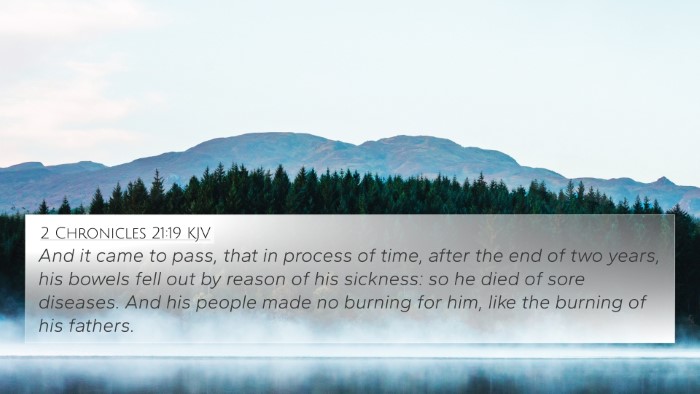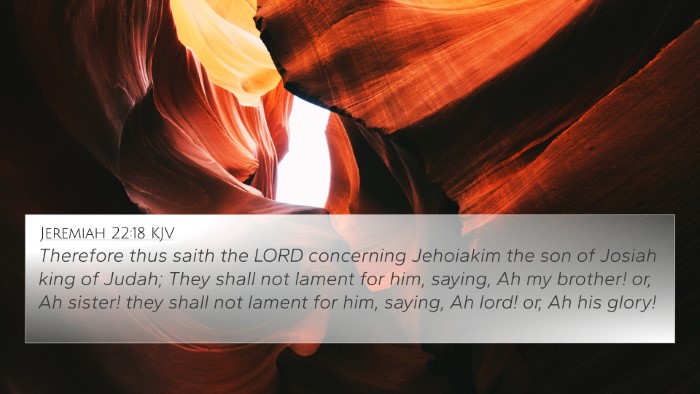Summary and Explanation of 1 Kings 13:22
1 Kings 13:22 states: “But came back, and did eat bread in the house of the prophet, and drank water.” This verse chronicles a significant event in the life of a young prophet, illustrating the consequences of disobedience and the faintness of human resolve in the face of divine commands.
Meaning and Insights from Commentaries
-
Matthew Henry's Commentary:
Henry highlights that the young prophet initially received a clear command from God not to eat or drink in that place. His return to the house of the prophet signifies a deviation from that command, showcasing human weakness and the influence of others in leading us astray. This disobedience comes as a warning about the importance of adhering strictly to divine instructions.
-
Albert Barnes' Notes:
Barnes emphasizes the cause of the young prophet's fall; the older prophet deceives him by claiming to have a revelation from God. This act points to the dangers of false prophets and the necessity of discerning truth from falsehood, reminding believers to test every spirit against what God has said. His indulgence in eating and drinking contrary to God’s command invites judgment upon him.
-
Adam Clarke’s Commentary:
Clarke maintains that the act of eating at the older prophet’s house not only breaches divine instruction but also highlights the significance of obedience amidst temptation. He reflects on the young prophet's vulnerability to human persuasion and how this led to grave consequences, urging readers to remain steadfast in their commitment to God's word.
Related Bible Verses and Cross-References
- Jeremiah 23:16 - A warning against listening to false prophets.
- Deuteronomy 13:1-3 - The call to adhere to God's commands even in the face of convincing messages from supposed prophets.
- 1 John 4:1 - Encouraging discernment in testing spirits to align with God's revealed truth.
- Proverbs 14:12 - The reminder that not all paths that seem right lead to life.
- Galatians 1:8-9 - The importance of holding to the true gospel and not being swayed by other teachings.
- Matthew 7:15 - Jesus warns about false prophets and their deceptive nature.
- Romans 16:17 - A call to watch out for divisions and contrasting teachings that go against the gospel.
Thematic Connections and Analysis
This verse initiates a robust dialogue regarding the theme of obedience. The importance of adhering strictly to divine instructions is echoed across multiple passages. The role of external influences and the insights from the stories of kings and prophets collectively encourage individuals to evaluate voices claiming divine authority critically. Within the narrative, we see a pivotal connection to how believers should approach teaching and discern truth.
Conclusion
1 Kings 13:22 serves as a foundational text in understanding obedience to divine directives and the potential pitfalls of deception. Through the wisdom in public domain commentaries by Henry, Barnes, and Clarke, one may appreciate the holistic meaning beneath the text, encouraging a steadfast commitment to God’s word while remaining vigilant against misleading influences.
Recommended Tools for Deeper Study
- Bible concordance - A useful tool for finding related themes and verses.
- Bible cross-reference guide - To aid in understanding interconnected scriptures.
- How to use Bible cross-references - Techniques for effective Bible study.
- Bible chain references - A method for tracing thematic continuity through verses.
Exploring Cross-References
Understanding 1 Kings 13:22 and its implications can be further enhanced by exploring its connections to other scriptures. Engaging in a comparative Bible verse analysis allows us to enrich our understanding of God’s expectations for obedience and discernment in the faith journey.
